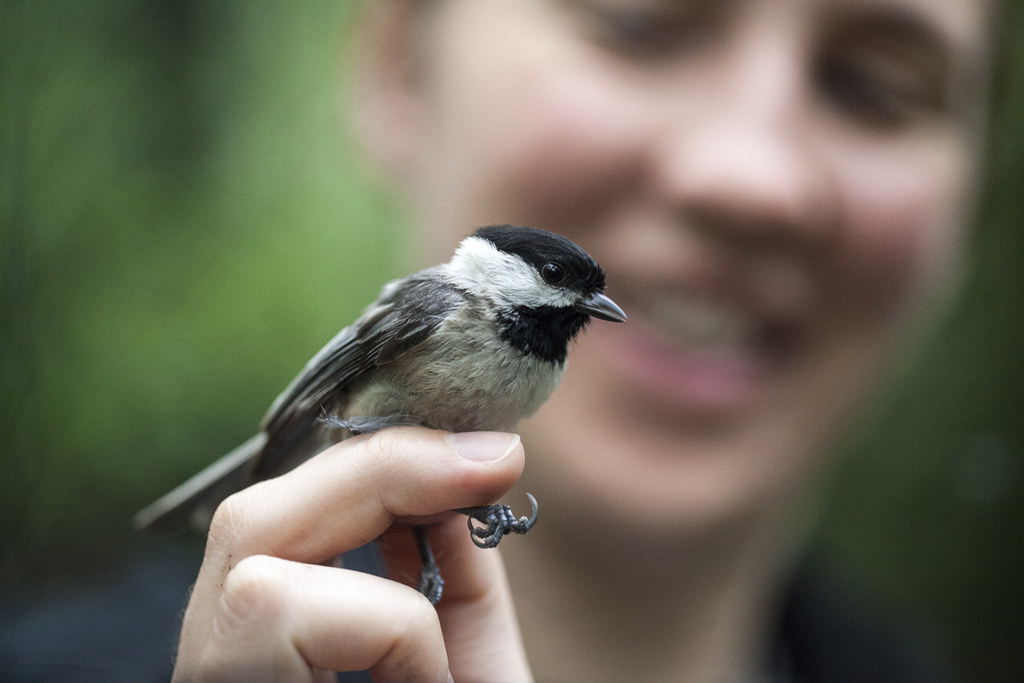Range map of the black-capped chickadee, Carolina chickadee, and approximate location of their hybrid zone. Credit: Alex Van Huynh and Amber M. Rice
Huynh and Rice found that both black-capped and Carolina chickadees produce chemically distinct natural oils. Testing both males and females of both chickadee species, they found that males and females prefer the smell of their own species over the smell of the opposite species. These preferences could be impacting hybridization. Their results have been published in an article titled “Conspecific olfactory preferences and interspecific divergence in odor cues in a chickadee hybrid zone” in the journal Ecology and Evolution.
“The sense of smell has been very understudied in birds, particularly songbirds, because they frequently have such impressive plumage and song variation,” says Rice. “Some other recent work has documented that species of songbird can smell and prefer their species' odors, but this is the first example in currently hybridizing species that we know of.”
“Our results show that not only can odor cues be used by songbirds, potentially as a mate choice cue, but that they can have ecological and evolutionary consequences for songbird species,” adds Huynh.
The black-capped and Carolina chickadees interbreed with one another, but their hybrid offspring suffer fitness costs. For example, the interbred chickadees are less likely to hatch from their eggs, and they have lower cognitive abilities than pure-species birds.
Interestingly, the researchers found that the chickadees they studied do not actively avoid the smell of the other species.
“This fact may be coincident with the observation that hybridization still does indeed take place,” says Huynh. “We know the hybrid zone is very small and its width is stable over time. In other words, the geographic area of hybridization is not growing or shrinking.”
Huynh and Rice caught wild birds from hybrid zone populations in Pennsylvania. They used gas-chromatography mass-spectrometry to analyze differences between the species in the natural oils the birds produce from their uropygial glands (also known as the preen glands). They tested for the species' odor preference using a Y-maze, measuring the amount of time a bird spends with a particular smell.





